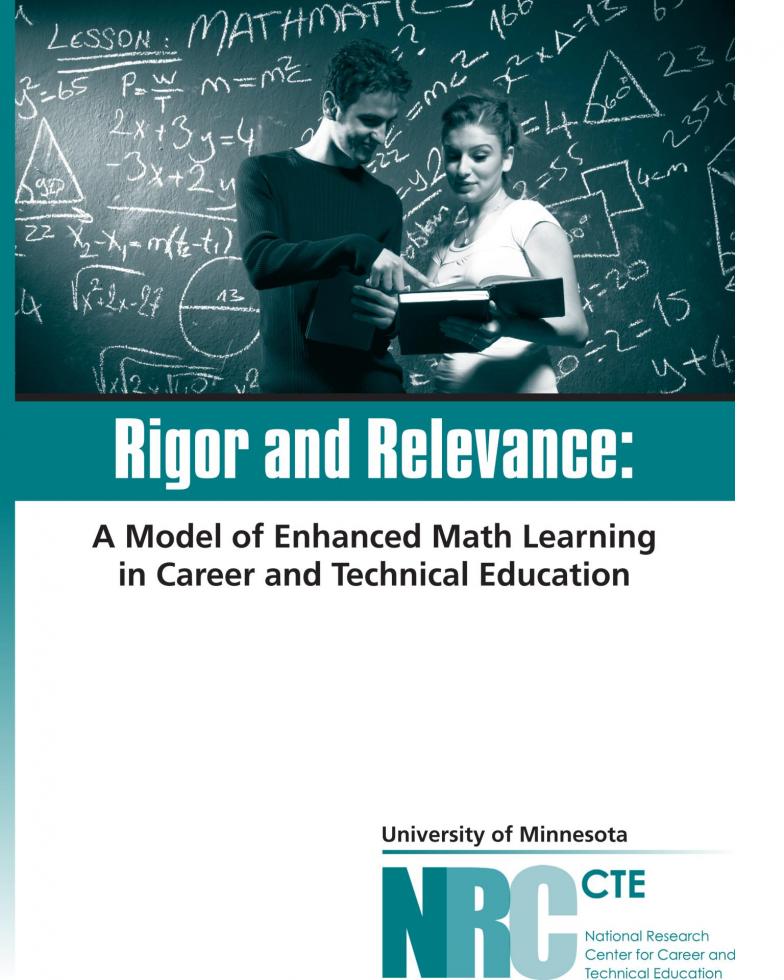Rigor and Relevance: A Model of Enhanced Math Learning in Career and Technical Education
 Many high school students,
particularly those enrolled in career and technical education
(CTE) courses, do not have the math skills necessary for today’s
jobs or for college success. This report describes a research
study designed to test a model for enhancing mathematics
instruction in high school CTE courses. A seven-element pedagogy
was designed to move CTE students gradually from a contextual
understanding of mathematics to a more abstract understanding
such as that required on many standardized tests.
Many high school students,
particularly those enrolled in career and technical education
(CTE) courses, do not have the math skills necessary for today’s
jobs or for college success. This report describes a research
study designed to test a model for enhancing mathematics
instruction in high school CTE courses. A seven-element pedagogy
was designed to move CTE students gradually from a contextual
understanding of mathematics to a more abstract understanding
such as that required on many standardized tests.
Volunteer CTE teachers from five occupational areas were recruited and randomly assigned to an experimental or control group. In a series of professional development workshops, the experimental CTE teachers worked with math teachers to examine the CTE curricula and identify the embedded mathematical concepts. The teams then developed instructional activities that the CTE teachers used to enhance the teaching of math that already existed (but was previously not emphasized) in the CTE curricula.
During the 2004-2005 school year, the experimental group of CTE teachers taught the math-enhanced lessons. Teachers in the control condition were asked to teach their regular CTE curriculum with no changes. All participants received compensation for their participation. After one year of exposure to the math-enhanced lessons, the students in the experimental classrooms performed significantly better on two of three tests of math ability. Furthermore, there were no differences in measures of occupational or technical knowledge, meaning that CTE students’ math skills increased without detracting from the content skills learned in their CTE courses.
The improved math performance of the students in the experimental groups in this study was produced by assembling teams of teachers in five occupational areas and providing them with a process and a pedagogy through which they could successfully enhance the math in their own curricula. Essential to the model was the ongoing teamwork between CTE teachers and their math partners in an authentic community of practice. Based on this study, we determined that the following five core principles are necessary to replicate our results:
- Develop and sustain a community of practice among the teachers.
- Begin with the CTE curriculum, not the math curriculum.
- Understand that math is an essential workplace skill.
- Maximize the math in the CTE curriculum.
- Recognize that CTE teachers are teachers of Math-in-CTE, not math teachers.
The report closes with a description of how technical assistance available from the National Research Center for Career and Technical Education can help other educators can achieve similar results.
Stone, J. R., III, Alfeld, C., Pearson, D., Lewis, M., & Jensen, S. (2007). Rigor and relevance: A model of enhanced math learning in career and technical education. St. Paul, MN: National Research Center for Career and Technical Education, University of Minnesota.

